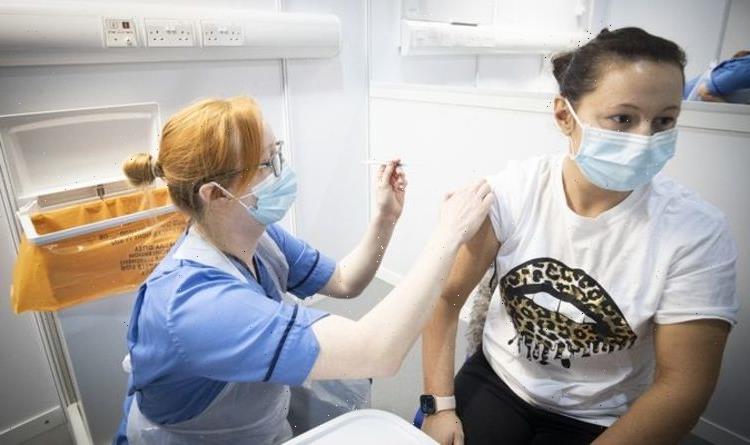NHS 'diversity officers' pay rate defended by campaigner
We use your sign-up to provide content in ways you’ve consented to and to improve our understanding of you. This may include adverts from us and 3rd parties based on our understanding. You can unsubscribe at any time. More info
The Life Sciences Vision, the Government report published in July, said that Britain could be a “leading global centre for innovative research, design and delivery” and that seems to be becoming a reality. Prime Minister Boris Johnson set out ambitious goals with the idea that less red tape bureaucracy from the EU could speed up processes like studies into new treatments for diseases.
Experts say the UK is now taking advantage of Brexit to provide healthcare innovation for patients and it will allow innovative products to be delivered faster through the new Innovative Licensing and Access Pathway (ILAP).
They also point out that the break from the EU has allowed the Medicines and Healthcare products Regulatory Agency (MHRA) to put in place these important post-Brexit reforms.
Claudia Rubin, Senior Director at Newmarket Strategy who has a decade of experience supporting healthcare and life science organisations to navigate the NHS, says the UK’s heroic vaccine rollout is just one example.
She wrote on Pharmafeild: “Unquestionably, the biggest tangible life sciences success attributed to Brexit is the COVID-19 vaccination scheme.


“The rapid rollout of vaccines has made household names of the likes of Pfizer and AstraZeneca.
“The celebration of the vaccine programme’s Britishness – in the science, the commercialisation and in the rollout – has certainly served to paint a picture of what post-Brexit Britain can achieve.
“In reality, Britain’s vaccine programme was not a by-product of Brexit. The UK could have gone its own way as a member of the EU, as well.
“However, arguably the vaccine scheme has illustrated the real and tangible benefits of reclaiming sovereignty over our medicine regulations, clinical trials, approvals and procurement.”

Thanks to Brexit, the UK intends to attract a range of biosimilar products through faster UK market entry, which was slowed down before by the European Medicines Agency (EMA) process, regulation that EU member states are subject to.
There is also said to be an opportunity to turn the NHS into “the world’s largest testbed for life sciences innovation. “
The Government has also launched its Life Sciences Investment Programme which will bring £1billion to the Uk’s most promising life sciences companies.
DON’T MISS
Pfizer breakthrough with Covid wonder pill one step closer [INSIGHT]
Archaeology breakthrough: Pre-Viking gold found ‘using metal detector’ [REVEAL]
Alzheimer’s breakthrough with new algorithm [STUDY]


Mr Johnson has also praised the breakthough.
Commenting on the new UK Life Sciences Vision report, he said: “We are indebted to the ingenuity of UK life sciences and its pioneers, with the discovery of the Oxford-AstraZeneca vaccine and the seamless collaboration between our scientists, industry, regulators and NHS saving millions of lives during the pandemic.
“We must make sure this is the norm and use this new way of working to search for life-changing breakthroughs against diseases such as cancer, dementia and obesity, as we have done with COVID.”
Source: Read Full Article
